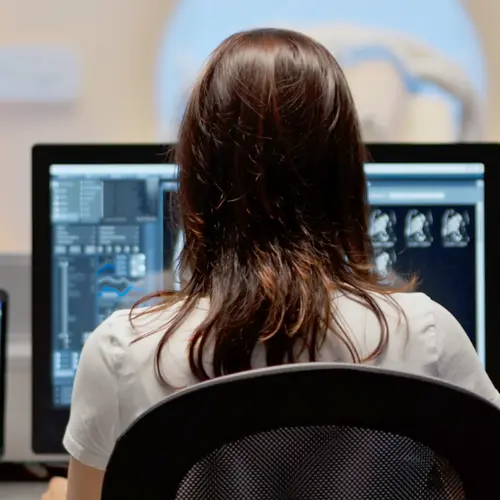If you have multiple sclerosis (MS), you may be more likely to have seizures than those who don’t have MS. Research shows that seizures are estimated to happen in about 5% of people with MS, compared to 3% in the general population. Why is that? Experts don’t know.
Seizures and MS: What’s the Link?
A seizure usually happens when one or more parts of the brain suddenly fire off abnormal electrical signals that disrupt your normal brain signals. If you have two or more seizures with no known cause, doctors may diagnose this as epilepsy.
Many things can cause it. That could include an infection, fever, low or high blood sugar, withdrawal from drugs or alcohol, or a concussion. Certain medications may also increase your risk for one, too. And in some cases, MS might be related to the seizures.
MS affects the central nervous system (brain and spinal cord). To understand how seizures might be more common among those with MS, it’s important to understand what the central nervous system is made of: gray matter and white matter. Seizures usually are a result of the misfired signals in the gray matter, while MS is something you may develop when there are lesions in the white matter.
Research shows there might not be a distinct line between the two types of matter. MS lesions and plaques may overlap into the gray matter, and this may trigger a seizure.
In fact, seizures are sometimes the first sign of MS before you get a diagnosis. They can also happen during an MS flare-up. But the timing between seizures and an MS flare-up might not be related and may happen by chance.
What Are the Types of Seizures?
There are two main types of seizures: focal or partial seizure and generalized seizure. The kind you may have depends on which part of the brain is affected and what happens during the seizure.
If you have MS, you may experience:
- Generalized tonic-clonic seizures. This is also known as grand mal seizure. When it happens, you may lose consciousness for a short time and involuntarily jerk your arms and legs.
- Generalized absence seizures. It’s similar to a grand mal seizure except without the jerking movements.
- Partial complex seizures. With this, you may appear to be awake while you repeat the same activity. But you might not respond to any external stimulation.
One study that looked at the link between MS and seizures among 1,267 people found that those with MS are more likely to have focal seizures. And MS lesions in the gray matter of the brain might play a role in triggering these seizures.
The study also found that those who have aggressive forms of MS like relapsing-remitting MS (RRMS) and secondary progressive MS (SPMS) are more likely to have seizures or epilepsy. None of the people in the study who had MS and seizures or epilepsy had primary-progressive MS (PPMS).
What Are the Symptoms of a Seizure?
Common seizure symptoms may include:
- Jerking movements in your arms and legs
- Stiffening of the body
- Loss of consciousness
- Trouble breathing
- Loss of bowel or bladder control
- Falling suddenly with no reason
- Lack of response to words and sounds
- Confusion
- Nodding your head rhythmically
- Loss of awareness
- Blinking quickly
- Staring
If you notice these symptoms, tell your doctor right away. If it’s an emergency, call 911 or head to the nearest hospital.
How Are Seizures Diagnosed?
If your doctor thinks you might have seizure activity, they may do tests to diagnose you, including:
- A detailed neurological exam
- MRI
- CT scan
- Electroencephalogram (EEG). This tests your brain’s electrical activity.
- Blood tests to check your blood sugar levels, among other things
- Lumbar puncture (spinal tap). This is done to measure the pressure in your brain and spinal cord. Your doctor may also check the spinal fluid for infection.
What Are the Treatments for Seizures?
Most seizures can be controlled with medication. Around two-thirds of people with seizures respond well to medications.
These may include:
- Carbamazepine (Tegretol)
- Phenytoin (Dilantin)
- Lamotrigine (Lamictal)
- Levetiracetam (Keppra)
- Valproic acid (Depakote)
If medications don’t work for you, your doctor may suggest surgery as an option.
What Can You Do to Prepare for a Seizure?
Seizures usually only last a short time, but they may be scary and can leave you feeling confused and tired. Because you’re more likely to have a seizure if you have MS, here are some things you can do to prepare, in case you have one:
- If you’ve noticed seizure-like activity, write down the details. This can include what type, how long it lasted, and what time it happened.
- Write down any change you may notice in your sleep, stress levels, or any changes in medication. These, especially lack of sleep, may increase your risk for one.
- Wear a medical bracelet that can alert emergency workers if you were to have a seizure.
Be aware of the warning signs for a seizure. If you think you have had a seizure, let your doctor know immediately.
Most seizures last anywhere from 30 seconds to 2 minutes. You may not need any emergency medical attention. But if it lasts longer than 2 minutes or if you lose consciousness and don’t recover right away, it’s important you get immediate medical attention. Let your loved ones know that if this were to happen, they should call 911 or head to the nearest hospital.
